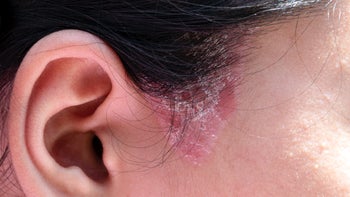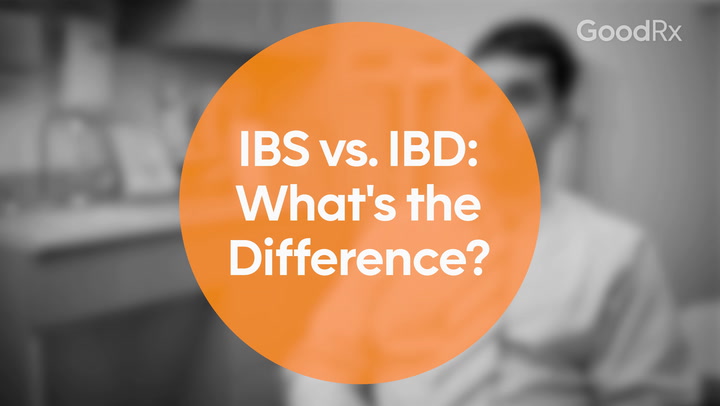
How Do I Know If I Have a Weak Immune System?
Key takeaways:
Your immune system protects you against infections.
A weak immune system can be due to genetics, other health conditions, or treatments.
People with immune deficiencies can have more frequent and severe infections as well as other symptoms.

Do you ever wonder about how well your immune system works? Do you, or someone you know, get sick more often than others? If so, you might be curious if you can get your immune system tested.
Immune system testing is available, but it’s a bit complicated. That’s because the immune system is very complex and has many moving parts. Here we’ll discuss how the immune system works, what happens when it doesn’t work properly, and what testing can tell us.
How does the immune system work to fight infections?
Your immune system is always working to protect you from attacks by infectious organisms such as bacteria, viruses, and fungi. This involves two kinds of immune responses — innate and adaptive.
Innate immune system
Your innate immune system is the first line of defense against many infections and includes the:
Linings of your digestive and respiratory systems
Scavenger cells like macrophages and neutrophils
But the innate immune system does not always work to control an infection. This is where the adaptive immune system comes into play.
Read more like this
Explore these related articles, suggested for readers like you.
Adaptive immune system
The adaptive immune system is composed of blood cells called lymphocytes. They provide a more specific and targeted immune response against an infection. There are two different kinds of lymphocytes — B cells and T cells. B cells make antibodies that protect against invaders at mucosal surfaces such as the sinuses, lungs, and gastrointestinal tracts. T cells help B cells and can also kill infected cells.
The adaptive immune system also has memory. This means that it remembers germs that it has previously battled. This is why once you have recovered from an infection, you are less likely to develop the same infection again.
What causes immune deficiencies?
Some people can have missing or non-functioning parts of their immune systems (called “immune deficiency”). As you can imagine, their bodies find it difficult to fight off infections. Immune deficiency causes a pattern of recurrent and often severe infections that can be difficult to treat.
Primary immune deficiencies
Primary immune deficiencies are caused by mutations, or mistakes in a gene, that affect the immune system. There are close to 350 known genetic mutations that cause primary immune deficiency.
The most common primary immune deficiency is selective IgA deficiency. People with IgA deficiency do not make an antibody called IgA, but they do produce all the other types of antibodies. This is why they are often healthy or have only mild infections. Other, more severe primary immune deficiencies are much more rare.
Secondary immune deficiencies
Secondary immune deficiencies occur when an external factor damages or weakens the immune system. Common examples include chemotherapy and HIV.
What is the difference between the terms ‘immunocompromised’ and ‘immunodeficient’?
In general, we use the term “immunodeficient” or “immune-deficient” to define measurable (objective) problems in the immune system. These can be in the innate or adaptive immune system. For example, people with HIV have low numbers of a T cell (CD4 cell), which makes them vulnerable to certain infections.
The term “immunocompromised” is very broad. It refers to anyone who has a decreased ability to defend themselves against infections. This includes people who have an immune deficiency.
However, some people can be immunocompromised even if they do not have an objective abnormality of their immune system. For instance, people who smoke or have increased body weight are at higher risk of developing infections, even with normal immune system testing. Researchers are looking into exactly why this happens.
Several factors increase the risk of being immunocompromised, including:
Age greater than 65 years
Increased body fat
Malnutrition
Smoking
Dementia or stroke
Living in a nursing home or long-term care facility
Medical conditions such as liver disease, heart failure, diabetes, and kidney disease
What are the signs of a weak immune system?
The biggest giveaway to a weakened immune system is frequently getting sick. An immune deficiency can leave your immune system unable to protect your body from different germs. This results in repeated or recurrent infections that may affect different organs. Examples include:
Ear infections
Sinus infections
Pneumonias
Sepsis
Skin infections
Yeast infections
Meningitis
The site of infection depends on the immune pathway that is affected. For instance, people with common variable immunodeficiency (CVID) have decreased antibody levels. This makes them more vulnerable — mainly to respiratory infections. On the other hand, chronic granulomatous disease (CGD) is caused by defects in innate immunity. It causes severe infections of the skin and bone, along with abscesses (pockets of pus) in organs such as the liver, lung, and brain.
Some immune deficiencies can be very serious. Severe combined immunodeficiency (SCID) is considered the most severe immune deficiency. It’s caused by gene mutations that affect T cells and sometimes B cells and other immune cells. Infants with SCID can’t defend themselves against even mild infections. SCID is a medical emergency and needs to be treated immediately with a stem cell transplant.
How can I test my immune system?
If you’re concerned that you have an immune deficiency, it’s a good idea to speak with your provider. They may refer you to a specialist called an allergist/immunologist. They can test your immune system to make sure that it’s working properly. The first step is a set of screening tests on your blood.
Screening blood tests include antibody testing as well as the numbers and function of different immune cells. The results can vary depending on your age, so these are not one-size-fits-all. Depending on what your immune testing shows, more tests (including testing for genetic mutations) may be in order.
How do I know that my immune system is working normally?
This can be a tricky question to answer. Even if testing of your immune system is normal, this doesn’t tell the whole story. Normal lab tests can be reassuring that you don’t have an immune deficiency. But there are several other things — aside from your immune system — that can make you more prone to infections.
It’s important to note that the immune system itself is very complex. We can measure the levels of different immune cells and even their function. But this only helps us to confirm or exclude an actual immune deficiency. Other things — like nutrition, lifestyle, and other medical problems — help determine each person’s immunity. As you can imagine, a lot of these are difficult to measure.
Can I improve my immune system?
It would be great to know for certain the steps you could take to improve your immune system. But there’s no solid evidence that supports a link between lifestyle and boosting your immunity. Here are some steps you can take to try to strengthen your immune system:
Minimize contact with sick people when possible
Some nutrients and supplements may also boost the immune system, but they haven’t been studied in big clinical trials. We can’t be certain that these supplements are helpful, but we know that good nutrition is key to a healthy immune system.
The bottom line
A strong and healthy immune system is crucial for your body’s defense against invading organisms. A weakened or compromised immune system can make you prone to recurrent infections. If you’re concerned about your immunity, the best place to start is speaking with your provider. They can help you decide if testing makes sense.
Why trust our experts?


References
Besedovsky, L., et al. (2019). The sleep-immune crosstalk in health and disease. Physiological Reviews.
Centers for Disease Control and Prevention. (2014). Smoking and overall health.
Childs, C., et al. (2019). Diet and immune function. Nutrients.
Immune Deficiency Foundation. (2013). Chronic granulomatous disease and other phagocytic cell disorders.
Immune Deficiency Foundation. (2013). Common variable immune deficiency (CVID) community center.
Immune Deficiency Foundation. (2013). The immune system and primary immunodeficiency.
Immune Deficiency Foundation. (2021). Manage your recurrent infections.
Immune Deficiency Foundation. (2015). Is it just an infection?
Institute for Quality and Efficiency in Health Care. (2020). The innate and adaptive immune systems. Informed Health.
Milner, J., et al. (2012). The impact of obesity on the immune response to infection. Proceedings of the Nutrition Society.
National Cancer Institute. (n.d.) Immunocompromised.
National Institute of Allergy and Infectious Disease. (2013). Overview of the immune system.
National Institute of Environmental Health Sciences. (2021). Autoimmune diseases.
Nieman, D., et al. (2019). The compelling link between physical activity and the body's defense system. Journal of Sport and Health Science.
Seiler, A., et al. (2019). The impact of everyday stressors on the immune system and health. Stress Challenges and Immunity in Space.
Thalhammer, J., et al. (2021). Initial presenting manifestations in 16,486 patients with inborn errors of immunity include infections and noninfectious manifestations. Journal of Allergy and Clinical Immunology.




























